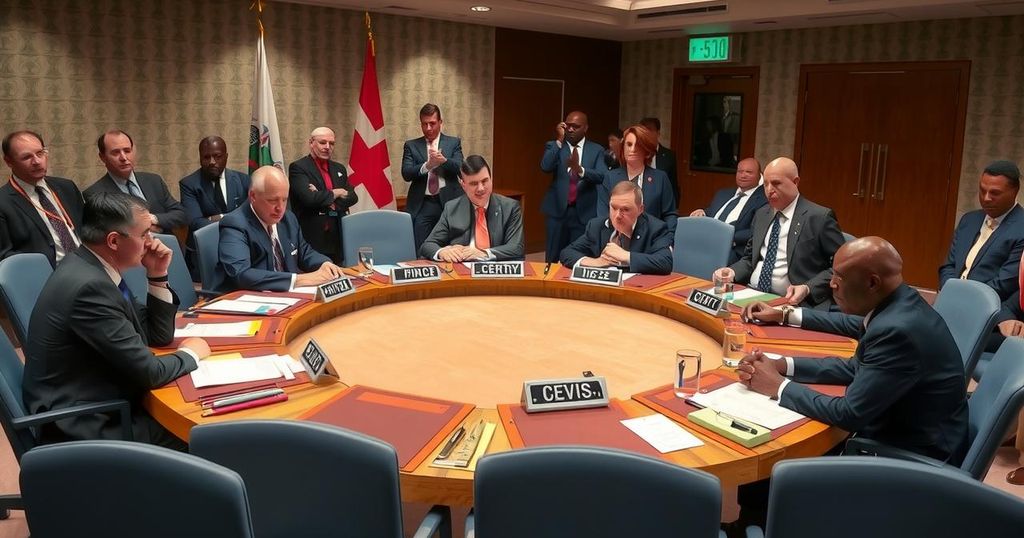Urgent Call for Peace as UN Security Council Addresses Violence in Eastern DRC

The UN Security Council convened to address the ongoing violence in the eastern Democratic Republic of the Congo, highlighting the instability from armed groups in North Kivu and Ituri. Bintou Keita emphasized the Luanda process and upcoming regional summit for peace efforts. The humanitarian crisis persists with millions displaced, while gender-based violence remains a critical concern, requiring urgent action and support.
On December 11th, the UN Security Council convened to discuss the escalating violence in the eastern Democratic Republic of the Congo (DRC), as presented by the UN Special Representative for the DRC, Bintou Keita. She highlighted the ongoing instability in North Kivu and Ituri provinces, particularly the activities of armed groups such as the ADF, M23, CODECO, and Zaïre. Ms. Keita acknowledged the mediation initiatives spearheaded by Angola, referring to them as the Luanda process, which aims to foster peace in the region.
Looking ahead, a summit scheduled for December 15 will gather leaders from Angola, the DRC, and Rwanda to assess progress in addressing these challenges. Ms. Keita emphasized the importance of integrating local processes and recommendations from various stakeholders, including civil society and women, into the peacebuilding efforts. She addressed political developments in the DRC post-elections, calling on authorities to implement governance reforms and avoid tensions surrounding potential constitutional revisions to maintain stability.
In her update, Ms. Keita noted that while the M23 continues to expand its territorial control, the ADF remains a significant threat to civilian lives. She underscored the need for closer regional cooperation to combat the illegal exploitation of natural resources, which fuels the conflict. The humanitarian situation remains critical, with millions displaced due to violence and climate-related challenges, although recent humanitarian funding efforts show improvement.
As the 16 Days global campaign against gender-based violence concludes, Ms. Keita reported over 90,000 cases of such violence documented in the DRC this year, with a focus on the government’s initiatives to combat impunity and restore dignity to victims. She reaffirmed her commitment to zero tolerance of sexual exploitation by UN personnel and commended the ICC for renewing its investigations into crimes in North Kivu. Closing her remarks, she amplified the voices of women and individuals with disabilities, together calling for lasting peace in the DRC.
The Democratic Republic of the Congo has been embroiled in violence for many years, particularly in its eastern provinces where several armed groups operate. Political instability, disputes over natural resources, and a lack of access to basic services exacerbate the humanitarian crisis. Recent efforts, including mediation led by Angola and a focus on governance reforms, aim to restore peace and stability. The ongoing violence is compounded by widespread human rights abuses, including gender-based violence, necessitating international attention and intervention.
The ongoing conflict in eastern DRC requires urgent action from both local authorities and the international community to maintain peace and security. Enhanced cooperation among regional players is essential to address the root causes of violence, particularly regarding the illegal exploitation of valuable natural resources. Efforts to improve governance, support victims of gender-based violence, and empower marginalized groups will be crucial in fostering a sustainable and peaceful environment in the DRC.
Original Source: news.un.org








